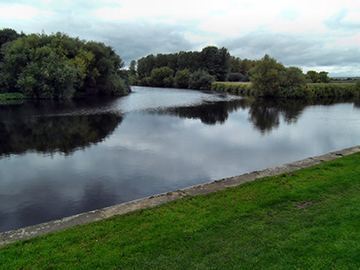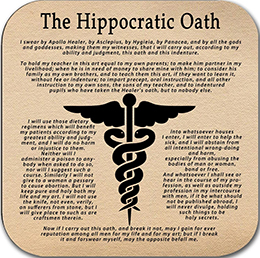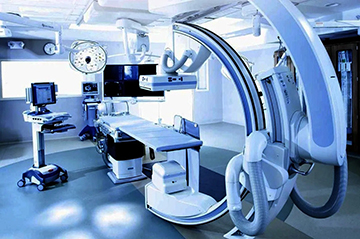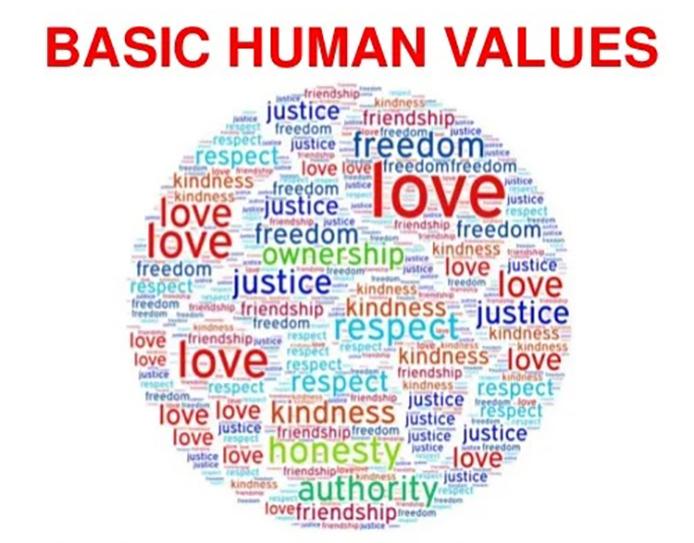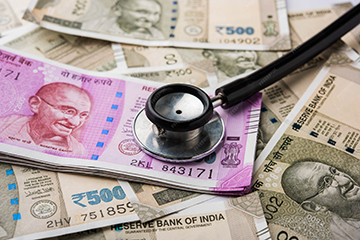Medicine and Health
The (Missing) Human Touch
Abstract
In the race towards sophisticated medical systems, we have somewhere lost the human touch. Money and machines are the new lords now, rather than compassion and the personal touch. It is time to take a relook at our medical education and ask where we are heading. This article explores this issue of building healers rather than standardised medicine dispensing-machines.
Introduction
Humanity, as a race, seems to be at the crossroads of evolution. The systems that our mind-based civilisation has built seem to have reached a peak from where further development along the same lines, without a commensurate development or evolution of the human consciousness, can threaten the human race itself. This danger of man from man himself is becoming more and more obvious, not only from destructive inventions, but also from those technological developments that are apparently meant to help humanity, such as drugs, vaccines, all technology-based healthcare. For all its marvellous interventive ability, it has no doubt weakened our natural immunity to diseases, of which increasing incidents of malignancies, new diseases and epidemics, young age heart attacks and sudden deaths are a reminder that all is not well. Perhaps we need to pause and look at the road we have chosen to travel in, the road that has brought lot of wealth to healthcare managers but at the expense of our natural ability to fight disease.
Healing process
Healing is a complex process, a package where a number of factors meet like the confluence of rivers coming from different directions and reinforcing each other. While the world of modern medicine is focused almost exclusively on medication and methods, the human factors involved in healing are almost completely ignored in medical training as well as in any discourse on health. Their importance is further undermined with the introduction of machines and especially the increasing use of Artificial Intelligence. However, the truth of things always stands and returns, asserting itself and showing the inadequacy and limitation of thought, when it advances linearly in one direction. So, we see now a dissatisfied section of humanity returning back to what was left behind in our haste. It is the human dimension of health and healing.
The missing element
The human dimension missing so far in our medical discourse is the triad of patient, physician and the caregivers. The patient factors that influence healing are faith, fear, will-to-live, physical and psychological constitution, attitude towards the illness, psychological and spiritual atmosphere at home and in the hospital, belief-systems that strongly influence him, goals that he is looking forward to or their absence. So too, the physician factors include, apart from the technical knowledge that is necessary, the ability to apply the knowledge rightly and wisely, experience, an intuitive sense that senses the problem, capacity to inspire faith, inject hope, instil courage and compassion that act to bring in forces of a higher order into play. Finally, the factors operating in the caregivers, especially the nursing staff include genuine care, sympathy and empathy, kindliness, mercy and a positive attitude that not only does not give up, but is full of hope. The nursing staff are not only caregivers but strength givers, hope givers, faith givers, drawing by their presence helpful divine Forces in the patient’s atmosphere, looking beyond the dark appearance and suffering towards a beautiful future.
Need for a course correction
How are we going to incorporate these subtle psychological elements into the curriculum? These human elements, which should spring naturally from the depths of the human heart are sadly missing, at least in the large majority of human beings, especially now in our time. Medicine is no longer a profession moved by some high and noble impulse to relieve suffering. It has become yet another means to make money. It has been afflicted by the modern disease called ‘utilitarianism’. And even where there is some apparent seeking for knowledge, it is largely limited to the usual discussions on the biological side of man and the patho-pharmacology of drugs and diseases. There is almost nil space on the psychological and spiritual side for health and healing. There is no scope for any value education or ethics beyond the basic manners or the Hippocratic oath which has become more a hypocrite’s oath. No wonder, doctors and nurses who were once regarded as demigods find their profession degraded, the white-coat dishonoured and what was once revered has become the object of public ire. Isn’t it time for us to look within and see what ails us and heal ourselves first of the disease called as greed and lust before we heal others? After all, what we saw in the recent gory event in Kolkata involving doctors is an extreme spill-over of the rot that has set into this once noble profession. Perhaps it is time to look within and do some course correction lest, we be reduced to become yet another machine among other machines. For machines are not respected. They are bought for a price, used by their owners to earn money and cast aside when their utility or ability is over.
Factors that impact
Of course, this civilisational decline is not limited to doctors alone. Every field of activity, professional and otherwise, shows this general decline, a loss of human values. Two factors that seem most important in causing this downslide are firstly, the almost exclusive importance given to money and material success in measuring the worth of a human being. Owning the latest car and phone, expensive dress, corporate position, value in terms of wealth are signs of success and, by default, the signs of an eelite. It is the philistine, the barbarian in the garb of the civilised man. Secondly, another important factor responsible for the degeneration of human values is the rise of machines. Machines not only make life mechanical and, in a sense, too predictable (thereby robbing the charm and danger of the unexpected), they also mould our heart and mind, turning them into a robot whose sole purpose is to be precise and exact and perfect in output and false. For the heart goes to sleep and love and wonder take the toll, where quest and seeking is replaced by an answering- machine and the joy of service is replaced by fast foods, ready to serve meals and fabricated products. Whatever may be the gain in terms of saving time and energy in favour of material efficiency, it comes at the heavy expense of certain deep civilisational values.
The new buzzword
Artificial Intelligence has brought in a newer dimension to the crisis of human values. On the one side, it has tilted the balance of power. Or rather, it has given power into the hands of the unchaste. It is power without accountability. In the field of healing, it means even lesser contact with human beings. The art of medicine and its human side is likely to be replaced more and more by an analytical science which, for all its advantages, reduces a human being to a bundle of chemicals and a sequence of genes. The danger anticipated in the novel, Rise of the Machines is perhaps not so much about the machines becoming conscious and taking over the human world, as much as it is the predominance of the machine-like intelligence, turning living thinking and conscious creatures into robotic machines. For that is the direction towards which an entirely analytical approach, devoid of love and beauty, will take us.
Besides, we tend to become identified with whatever we are dealing with day and night and fall in love with. It is said, and with sufficient reason, that each technological advance leads to some kind of biological amputation. The more we advance technologically, the more dwarfed we become in those dimensions and aspects that are not technologically driven. While we cannot reverse the gifts of technological advancements despite it being a mixed bag, what we need is to not let us be overwhelmed by them, or lose all that is beautiful, humane and divine in us. That is the real danger. In trying to look after the body through equipment and machines, are we losing our soul?
The way forward
How to incorporate these deepest highest human values in our education and practice is a matter of discussion and cannot be dealt with in a summary manner. But the urgency is there. One possible solution suggested by those who recognise the problem is to enact laws. But ethics have no real value if they are imposed from outside and practised out of fear. Fear is the worst teacher and whatever we do or don’t do out of fear is short-lived and breaks down at the first opportunity. Even if the fear of law is strong, it doesn’t change anything within us and hence remains always suspect in its impact apart from the fact that fear often makes a society ruthless and aggressive, with a proclivity to violence as a release of the anger and the anguish suppressed within. The second and more comprehensive solution is the incorporation of human values at every level of education. Finally, the only real way to transmit these deeper and higher human values is through living examples in the family as well as in society at large. This is only possible through a further spiritual evolution of the human race. Who will be the leaders and the pioneers is hard to say, but even a small beginning in this direction will be much more helpful than a host of debates and discussions or theories and advices.
The Mother reminds us:
“The best example to give would be the unalloyed serenity and immutably peaceful happiness which belong to one who knows how to live integrally this thought of the One God in all.
“From the point of view of our present environment, here is the idea which, it seems to me, it is most useful to spread:
“True progressive evolution, an evolution which can lead man to his rightful happiness, does not lie in any external means, material improvement or social change. Only a deep and inner process of individual self-perfection can make for real progress and completely transform the present state of things, and change suffering and misery into a serene and lasting contentment.
“Consequently, the best example is one that shows the first stage of individual self-perfection which makes possible all the rest, the first victory to be won over the egoistic personality: disinterestedness.
“At a time when all rush upon money as the means to satisfy their innumerable cravings, one who remains indifferent to wealth and acts, not for the sake of gain, but solely to follow a disinterested ideal, is probably setting the example which is most useful at present (1).”
Conclusion
What we are therefore witnessing today is a crisis of values in every field. Money is the new lord and compassion has taken a back-seat. When this happens in the field of medicine and healing, it hits as a stark contrast. Whether the once noble profession of medicine will undergo an internal revolution or else, as a result of this, new modes of healing will emerge that are not so heavily dependent on technology and money is something to be seen. For modern-day allopathy was not the first line of healing nor will it be the last. In fact, before the different systems of healing emerged, when man was still close to nature and the simplicity of the animal life, he possessed a human body that knew how to heal itself. Then came analytical reason and gradually the instinctive healing and holistic modes of healing were replaced by a reductionist approach that largely focused on the disease, agent and drug. Who knows whether the coming decades may not see a more intuitive and direct healing methods emerge and replace modern medicine? After all, methods and technology are extensions of what we are. And hopefully human evolution is not over and there is more waiting to emerge than what our reason can surmise and our imagination can guess.
Reference
1. The Mother. The Collected Works of the Mother, Volume 2. 2nd ed. Pondicherry: Sri Aurobindo Ashram Trust; 2003, pp. 69-70.
Dr. Alok Pandey, an editor of NAMAH and a member of SAIIIHR, is a doctor practising at the Sri Aurobindo Ashram.
Share with us (Comments,contributions,opinions)
When reproducing this feature, please credit NAMAH,and give the byline. Please send us cuttings.


